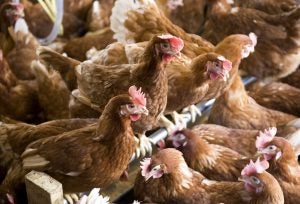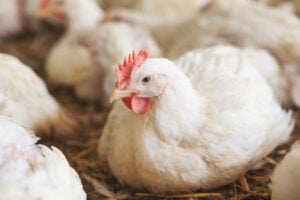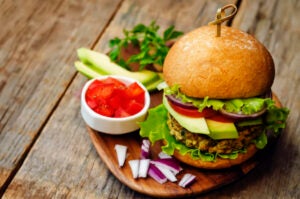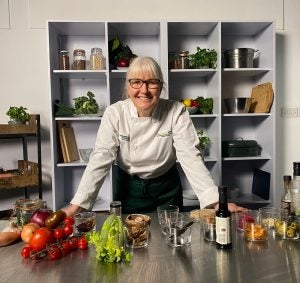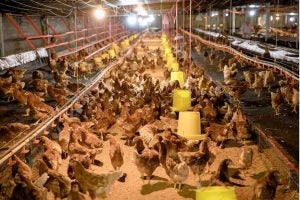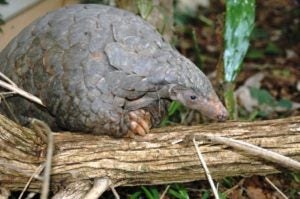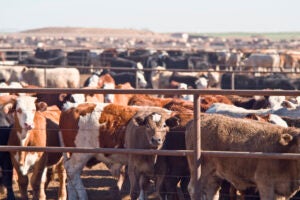
LONDON—More than 50 animal protection, environmental and food justice organisations from around the globe have written to Rt. Hon. Alok Sharma MP, president of the COP26 climate change conference organised by the United Nations Framework Convention on Climate Change (UNFCCC), calling on the UNFCCC to publicly recognise the catastrophic impact animal agriculture has on the planet at this year’s conference.
In the animal agriculture industry, more than 88 billion animals are raised and slaughtered for food every year. This industry is responsible for an estimated 14.5%—16.5% of human induced greenhouse gas emissions globally, on par with emissions levels of the entire transport sector. Despite animal agriculture being one of the largest contributors to climate change, it is largely neglected by countries around the world in climate change mitigation strategies and commitments.
The letter, signed by Humane Society International, World Animal Protection, Brighter Green Compassion in World Farming, 50by40, Animal Equality, FOUR PAWS International, ProVeg International, RSPCA, The Humane League and others calls on the COP26 conference, taking place in Glasgow in November, to formally acknowledge animal agriculture’s climate impact. The groups hope that formal recognition at COP26 will encourage world leaders to commit to meat and dairy consumption reduction strategies to meet the Paris Agreement’s below 2°C target.
The letter reads: “Addressing these urgent areas in the UNFCCC COP26 meeting would help propel governments around the world to take action and would provide world leaders with another high impact option to add to their toolbox for tackling climate change. Working with farmers to support and catalyse a shift towards more plant-centric food production and consumption is a proactive step that must be taken to future-proof global food and agricultural industries… We call on the UNFCCC to formally and publicly recognise the role of animal agriculture as one of the largest contributors of climate change and to open a greater space for dialogue.”
In addition to significant greenhouse gas emissions, the farm animal production sector is also the single largest anthropogenic user of land, with meat, egg, dairy and aquaculture production systems using approximately 83% of the world’s farmland while providing just 37% of the world’s protein and 18% of calories. Animal agriculture is also a major driver of deforestation, species extinction, land degradation, exhaustion of water resources and pollution.
Reducing meat and dairy production and consumption is one of the most effective actions we can take to avoid catastrophic climate change. Scientists agree—including the 107 experts who prepared a report for the UN’s Intergovernmental Panel on Climate Change, and the more than 11,000 signatories from 153 countries to a recent paper in the journal BioScience —that global shifts towards more plant-based diets will be key in tackling climate change.
The UN’s latest Intergovernmental Panel on Climate Change (IPPC) report revealed that the climate crisis is poised to get worse if greenhouse gas emissions continue to surge, and that the future of the planet depends on the choices that humanity makes today. The report is a stark warning that if we want to win the ‘Race to Zero’, it’s imperative that we tackle every major driver of climate change, including intensive animal agriculture, collaboratively across all countries.
Julie Janovsky, Humane Society International’s vice president for farm animal welfare, says: “When it comes to the impacts of animal agriculture on climate change, we cannot continue to kick the can down the road. While many governments and constituencies have recognized and taken action to address the impacts of the energy and transport sector, governments have yet to adopt policies to reduce the impact of large-scale, intensive animal agriculture on the environment. If we are serious about avoiding climate catastrophe, world leaders must acknowledge the science and implement strategies to change our global food system to one that significantly reduces industrial animal agriculture. Reducing the number of animals raised and slaughtered is a legitimate and essential component of tackling climate change, restoring biodiversity and ending the cruelty caused by factory farms. Ignoring the immense climate impact of industrial animal farming is no longer an option, and the COP26 climate change conference offers a vital opportunity for world leaders to take action.”
Cities and countries are beginning to acknowledge and make an effort to reduce meat consumption as a climate change mitigation strategy. Earlier this year, France announced that its climate and resilience bill encourages a more plant-based diet to reach net zero greenhouse gas emissions. The bill includes that by 2023, all school cafeterias will have to feature one compulsory vegetarian menu once a week, and that at least one daily vegetarian option should be offered in all state-run canteens. Shortly after, the City Council of Berkeley in the United States also passed a resolution to divert half of the city’s spending money from animal-based foods to plant-based foods by 2024. Further, the Council will also look to adopt a long-term goal of replacing 100% of animal products with plant-based products to combat climate change.
The open NGO-led letter is signed by:
- 50by40
- A Well-Fed World
- AbibiNsroma Foundation
- Albert Schweitzer Stiftung für unsere Mitwelt
- Alianima
- Animal Equality
- Animal Legal Defense Fund
- Animals Aotearoa
- Aquatic Life Institute
- Bank Information Center
- Brighter Green
- Center for Biological Diversity
- Coalition for Sustainable Food Practices
- Compassion in World Farming
- Creature Kind
- Default Veg
- Djurens Rätt
- Earthjustice
- Eat for the Earth
- Eurogroup for Animals
- EuroVeg
- Factory Farming Awareness Coalition
- Farm Forward
- Farm Sanctuary
- Feedback
- Fish Welfare Initiative
- Foundation for Advice and Action in the Defence of Animals (FAADA)
- FOUR PAWS International
- Fundación Vegetarianos Hoy
- Green REV Institute
- Harvard Animal Law & Policy Program
- Humane Society International
- Humane Society of the United States
- Jem pre Zem
- LAV
- Nourish Scotland
- One Kind
- Phoenix Zones Initiatives
- Plant Based Health Professionals UK
- ProVeg International
- RSPCA
- Science and Environmental Health Network
- Sinergia Animal
- Song Thuan Chay
- The Global Federation of Animal Sanctuaries
- The Humane League
- The Humane League UK
- The Raven Corps
- True Animal Protein Price Coalition
- True Health Initiative
- Vegan Society
- Veganuary
- VegeProject Japan (VPJ)
ENDS
Media Contact: Leozette Roode, HSI/UK: +27 (0)713601104; LRoode@hsi.org

